Publications
-webp(85)-o(png).webp?token=e52464b807d267b6a342182797856d4e)
Moscow and the Search for Destiny
A few years ago, I attended the rock opera “Juno and Avos,” which had a full house at the Rostov Musical Theater. I could hardly have imagined then that years later—and in Armenia, no less—I would have the chance to meet someone who was among the creators of that very opera.
Kamil Tchalaev is a composer, violinist, conductor, teacher, and sound therapy specialist. He came to Armenia at the invitation of the “301. Land of Wisdom” Foundation and continues his work here.
It’s difficult to describe in a short piece the life of someone with such a rich personal and professional background, his mission, his journey, and his living museum of musical instruments—but I’ll try.
Kamil Shirvaniyevich was born into a musical family: his father, Shirvani Ramazanovich, was the first professional composer from Dagestan, and his maternal grandmother was a pianist of Jewish descent from Kherson.
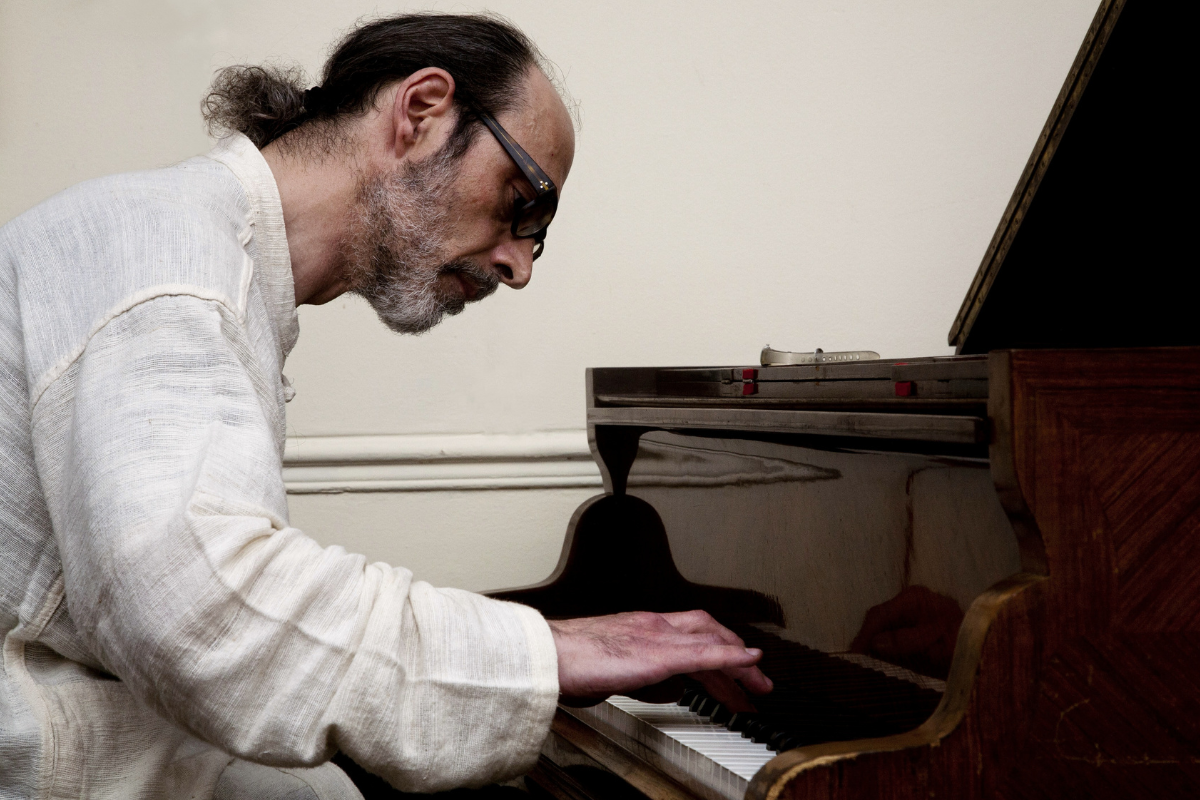
“I was born and raised in Moscow; my entire life has been connected with music. I started playing the violin at the age of 4, and at 7 I entered the Central Music School of the Moscow State Tchaikovsky Conservatory. As a teenager, I became fascinated by rock music and later joined Chris Kelmi’s band ‘Rock Atelier,’ which performed at the Lenin Komsomol Theater. Becoming a rock bassist, I started singing and abandoned classical music. I created my own destiny and didn’t follow anyone’s advice,” Kamil Tchalaev begins his story.
Kamil’s childhood passed among Moscow’s Jewish intelligentsia, who gathered weekly at his grandparents’ home around a large black concert piano. It would seem that such a life should have led him toward classical music, yet he drew his own path: rock, avant-garde theater, working with Zhanna Aguzarova’s band “Bravo,” conducting in church, collaborating with leading theater scholar Anatoly Vasilyev, and living in France.
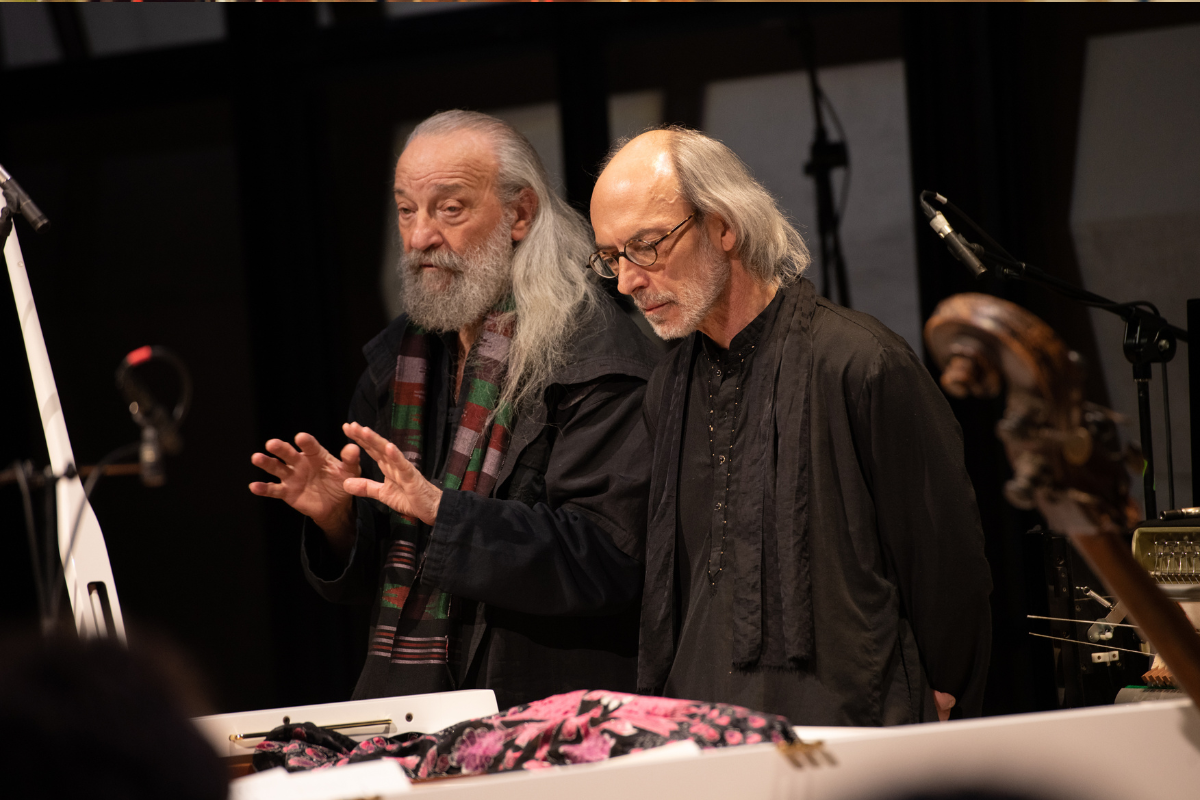
Moving to France and Founding the “Wild School”
Tchalaev first went to France with the rock opera “Juno and Avos.” Paris struck him deeply after the oppressive Soviet system. In 1983, he threw a coin into the Seine, saying, “I will come back here one day.”
Several years later, after many twists of fate, he did return to France—this time for good. He studied there, became a church conductor and cantor.
The idea of creating an avant-garde “Wild School” (Ecole Sauvage NALi) came to Kamil in his teenage years, though the roots of it went back to childhood—when, being in love with a girl named Katya, he wrote in a letter to her that he wanted to become a saint, to help people, and to be useful.
“This bourgeois, capitalist upbringing still doesn’t satisfy me; I cannot bear to see this ostentatious wealth, these possessions. What can one own other than one’s own life? This is a very unjust, cruel world—and that became one of the reasons for founding the school. The church also influenced me: it shapes your way of thinking, teaches respect for others, for the weak and the unfortunate.”
In the late 1990s, when artists in France were being sent to suburban neighborhoods with high concentrations of migrant children, Kamil, together with dancer and choreographer Sabine Jamet, founded the “Wild School.”
“We had to work with children of African and Maghrebi descent—no one else cared about them. I started buying African instruments, then found others. That’s how my collection of musical instruments began. The school had 15 kids who would squeeze into my little car—I took them out of the neighborhood; we played, made music, ran, danced, filmed movies, even went to the seaside. They were amazing children; some of them became teachers themselves. These are the traces I’ve left after 20 years,” Tchalaev continues.
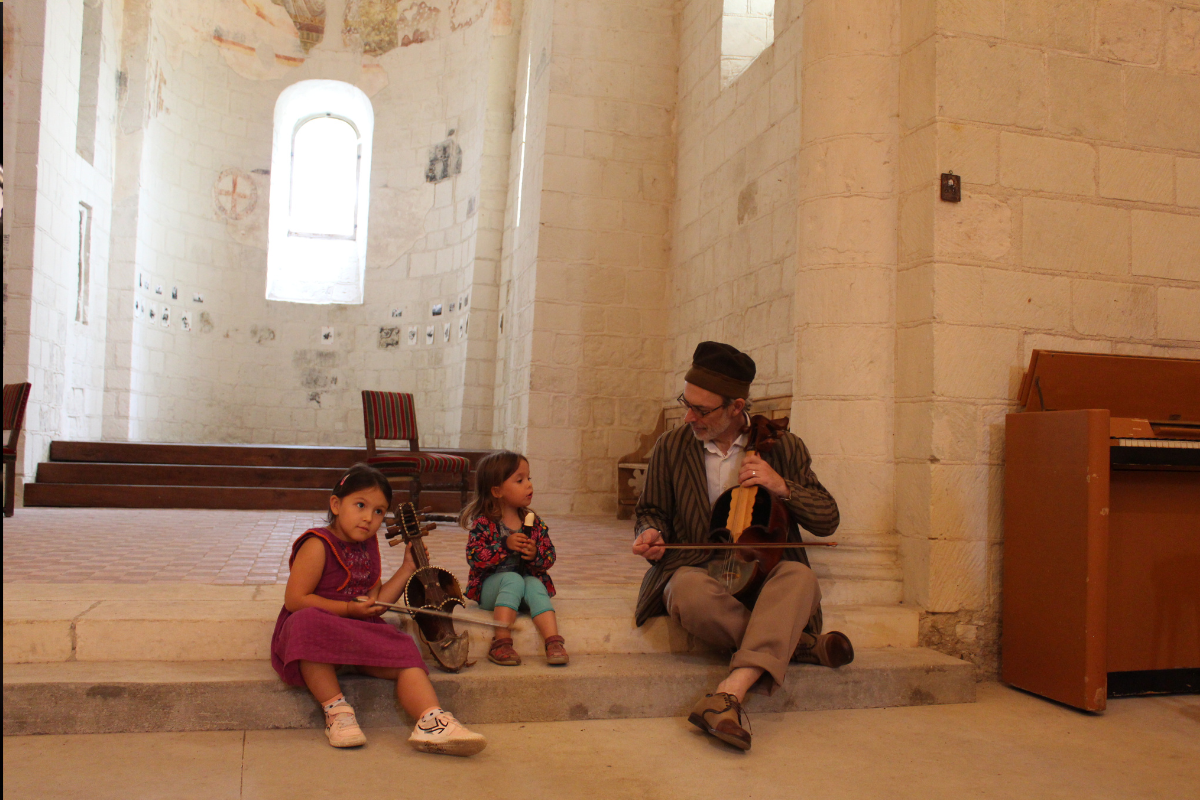
He later began traveling to the U.S. and Ukraine, to Odessa, trying to see where his grandfather had lived and to find his house. But he found something different: from 2004 to 2012, Kamil and his wife Sabine held sessions at a center for children with cerebral palsy, bringing instruments—some they donated, some they took back. “That’s how the Museum of Tactile Sounds was created, and later the Tactive Museum (a neologism coined by Tchalaev, combining the words ‘tactile’ and ‘active’). Meanwhile, I started welcoming children in France, and the number of instruments kept growing. I had a space where I could work and collect my instruments. We created a sounding environment where everyone was happy and needed nothing else—because the outer world is cruel, it makes too much noise.”
Music Heals
How does sound heal? Sound carries a healing essence simply because it vibrates with even or uneven oscillations. These are natural vibrations—waves that act on human hearing. The children who come to Kamil Tchalaev often have disrupted connections between the two hemispheres of the brain. Sound has an immediate effect: it aligns bodily fluids, and since humans consist of a mass of fluids, sound affects them instantly. “People don’t realize what’s happening—they enter a sound environment and begin to calm down. A pure interval is simple; it allows relaxation. Most children leave happy or begin to feel happiness after visiting frequently.”
“People have lost their sense of touch; they no longer connect physically with anything except a smartphone. But when they suddenly realize that they can pluck a string, strike it, play with a bow—that a string has both transverse and longitudinal vibrations, for example—they experience two completely different effects. This is the scientific explanation, but children don’t need theory—they just find themselves inside the environment of music. Music heals because it restores a person’s physical and emotional balance, influencing both the brain and the vestibular system. And these children usually have balance issues.”
The “Wild School” in Armenia
In 2022, Kamil Tchalaev was invited to work in Armenia by the “301. Land of Wisdom” Foundation, with which he signed a seven-year contract. The foundation made it possible for him to bring his instruments: around 350 of his 500 instruments were transported to Armenia and are now used in his music therapy sessions. Among them are a piano from the time of Frédéric Chopin, Louis de Funès’ piano, and instruments from all over the world.
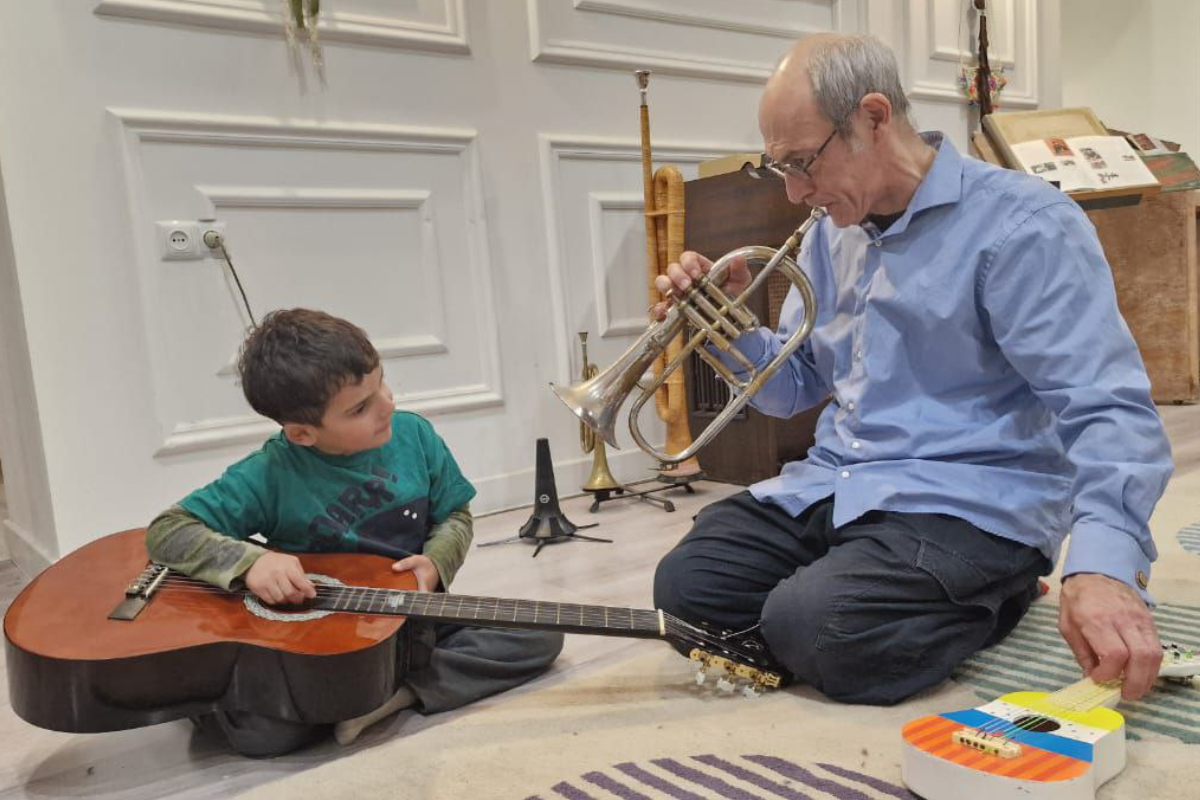
“I transported 1,200 kilograms of musical instruments. I haven’t brought the rest yet because there’s no space—and no reason to. I sometimes go back to France, and I still need them there, as I’ve kept my students. Currently, I have around 25 children, and new ones keep joining almost daily—mostly on the autism spectrum. I work with each child individually, but from time to time I organize group sessions and public performances of the school, at least once a year. Last year, I held the Wild Yerevan Festival at the Chamber Music House, featuring ten concerts—one of which had children performing on stage. This year, we did it at the Composers’ Union.”
Winning Small Battles
Tchalaev believes that we win through small battles—and his greatest battle is helping children rediscover their sense of touch, to learn how to handle ancient musical instruments and draw sound from them.
His long-term goal is to build a dedicated building for the “Wild School” and pass on his knowledge and skills to those who wish to follow a similar path and mission.
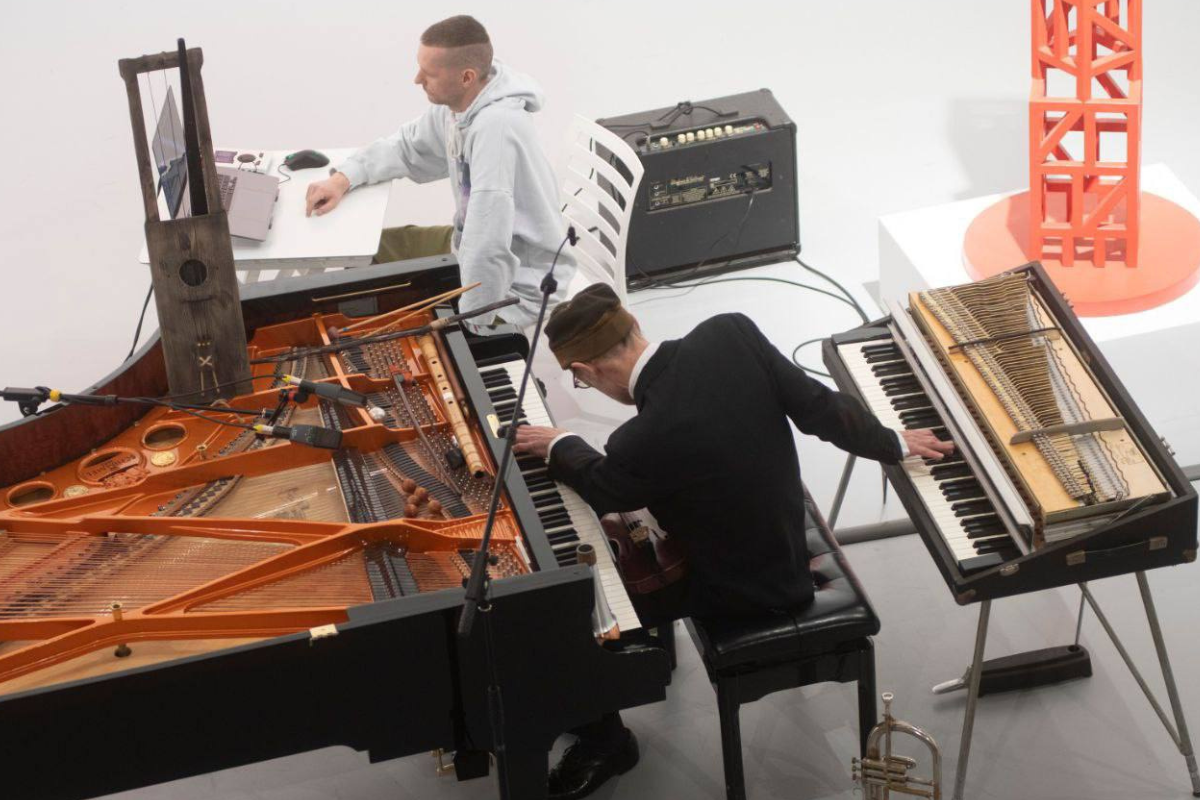
“Armenia has given me everything—it allowed me to go deeper into my own ideas. Armenia helped me focus and realize that nothing is more important than what I do. I teach children not to fear sound—to hear and feel music, to express themselves, and gently guide them toward new discoveries and harmonies. Music lives within me; it fills me and gives me strength. With this great, bright power, I want to teach, heal, and inspire others.”
By Nare Bejanyan
Translation via AI based on the original article in Russian: «Учить, лечить и вдохновлять музыкой: «Дикая школа» Камиля Чалаева».
-
News
-webp(85)-o(png).webp?token=d92fee26fe94722600393448f07de612) 25.02.2026Arriving in Armenia: How to Exchange Money at Zvartnots Airport Without Overpaying
25.02.2026Arriving in Armenia: How to Exchange Money at Zvartnots Airport Without Overpaying

-webp(85)-o(png).webp?token=11f270792363a77b4704850567ac2af1)
-webp(85)-o(png).webp?token=339120d84b4fffad516cdf16da05e78f)
-webp(85)-o(png).webp?token=0f42b0b6495e56f8d4c718a8194ddb85)